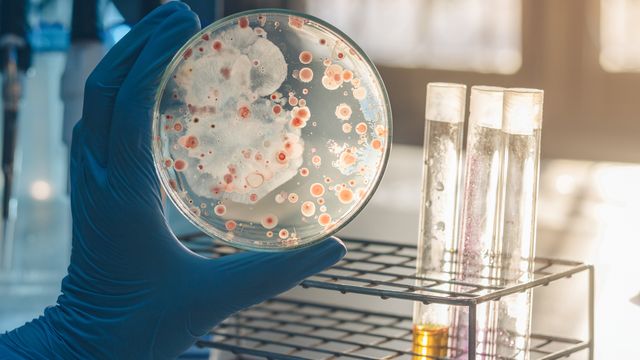Yersinia enterocolitica Culture Testing in Pork Products
The presence of Yersinia enterocolitica in pork products can pose significant health risks, especially for vulnerable populations such as young children and the elderly. This bacterium is a common cause of gastrointestinal illness and can lead to more severe systemic infections if not properly managed.
Our culture testing service ensures that pork products are safe by identifying Yersinia enterocolitica at its early stages. The process involves collecting samples from various parts of the pork supply chain, including raw materials, finished products, and processing environments. Samples are then inoculated into selective media to enhance the growth of Y. enterocolitica.
The testing protocol adheres strictly to international standards such as ISO 13786:2019 and EN ISO 13786-1:2019, which outline recommended procedures for isolation and identification of Yersinia spp. in foodstuffs. This ensures that our results are reliable and internationally recognized.
Our team of microbiologists uses advanced laboratory techniques to ensure accurate detection. Techniques include colony morphology examination, biochemical tests, and, if necessary, molecular methods like PCR (Polymerase Chain Reaction) for confirmation. The entire process is meticulously documented to provide clients with comprehensive reports that are essential for quality control.
The significance of this test extends beyond mere compliance; it plays a crucial role in safeguarding public health by preventing the spread of Yersinia enterocolitica through pork products. By identifying and eliminating contaminated batches early, we help ensure the integrity of the food supply chain.
Our culture testing service is highly sensitive and specific, making it an invaluable tool for maintaining high standards in the pork industry. It complements other microbiological testing methods like pathogen detection by providing a deeper understanding of the microbial load present in the product.
In addition to ensuring compliance with regulatory requirements, this test also supports internal quality control measures and helps manufacturers maintain their reputation as suppliers of safe and high-quality products. By partnering with us, clients can rest assured that they are taking proactive steps towards protecting public health and maintaining market trust.
Applied Standards
| Standard | Description |
|---|---|
| ISO 13786:2019 | Includes recommendations for the isolation and identification of Yersinia spp. in foodstuffs, including pork products. |
| EN ISO 13786-1:2019 | Specifically addresses the procedures for the isolation and identification of Yersinia enterocolitica in foodstuffs. |
Why Choose This Test
The importance of culture testing cannot be overstated, especially when dealing with products like pork that are consumed directly by the public. Our Yersinia enterocolitica culture test is not only compliant with international standards but also offers several advantages:
- Compliance: Ensures adherence to regulatory requirements and industry best practices.
- Precision: Utilizes advanced microbiological techniques for accurate detection.
- Rapid Results: Provides timely insights into the microbial quality of pork products.
- Safety: Helps in preventing the spread of Yersinia enterocolitica through contaminated products.
By choosing our service, clients can gain a competitive edge by demonstrating their commitment to product safety and quality. This test is an essential part of any comprehensive food safety program, helping companies meet consumer expectations and regulatory requirements.
Competitive Advantage and Market Impact
In today's highly competitive market, maintaining a reputation for producing safe and high-quality pork products is crucial. Our Yersinia enterocolitica culture testing service provides several key benefits that can enhance a company's position in the market:
- Reputation: Demonstrates a commitment to product safety, which builds trust with consumers.
- Customer Satisfaction: Ensures that products meet or exceed consumer expectations for quality and safety.
- Regulatory Compliance: Helps companies stay ahead of regulatory changes and requirements.
- Cost Savings: Early detection and correction of contamination issues can save costs associated with recalls and reputational damage.
By integrating our testing service into their quality control processes, clients can differentiate themselves in the market. This not only enhances brand reputation but also fosters long-term relationships with customers who value safety and quality.





